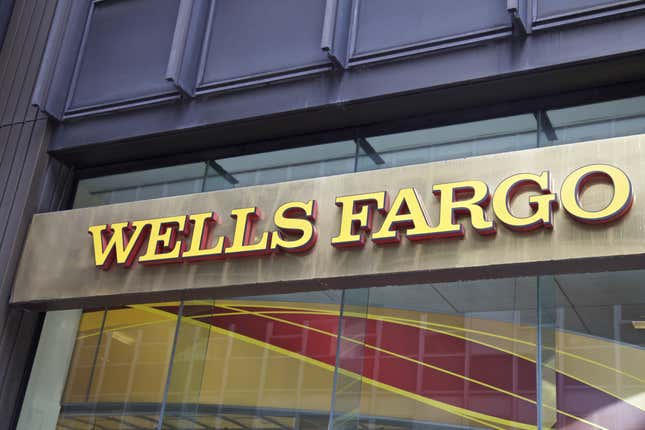
The pressure is on New York City Mayor Eric Adams and Comptroller Brad Lander to hold Wells Fargo accountable for racial discrimination against Black homeowners. Wells Fargo is going up against 29 other banks for contracts to host revenue, payroll and other bank accounts for NYC agencies. But a coalition of 21 community groups signed a letter to Adams and Lander in late March arguing that the big bank violated anti-discrimination laws with excessive denials of mortgage refinance applications submitted by Black homeowners.
Wells Fargo denied over 52 percent of the single-family home mortgage refinancing applications submitted by Black New York City residents in 2020. This act prevented Black homeowners from securing lower interest rates or having the ability to access equity from their homes. That 52 percent was almost double that of white Wells Fargo applicants and more than double the rate for NYC Black applicants with other institutions. And this trend is not just happening in New York City. As The Root reported, a March 11 Bloomberg News analysis found that Wells Fargo approved less than half of the mortgage refinancing applications submitted by black homeowners nationally in 2020.
“This alarming disparity — which indicates a clear violation of the City’s designation requirements — is only the latest in a long line of scandals and misconduct by Wells Fargo, and calls for unequivocal action by the Commission rescinding the bank’s designation,” Public Bank NYC wrote in the letter.
Wells Fargo responded to the criticism in an email:
“We are confident that our underwriting practices are consistently applied regardless of the customer’s race or ethnicity, and that additional, legitimate, credit-related factors were responsible for the differences in our refinance approval rate for Black homeowners. Wells Fargo is fully committed to helping close the minority homeownership gap in the U.S., which is the result of systemic inequities in housing that go back decades, and a financial system that has not been sufficiently inclusive of diverse communities.”
At the federal level, the Biden administration is trying to introduce policies that help Black homeowners get as much value as possible from their homes, including the Property Appraisal and Valuation Equity (PAVE) plan that seeks to reduce the impact of racial bias in the home appraisal industry. But Wells Fargo has a long history of issues with minority homeowners. In 2012, the federal government reached a $184 million settlement with the bank for allegedly pushing Black and Latin homeowners into subprime mortgages. And some Wells Fargo employees have supported claims of racial discrimination against the bank. One former loan officer recalls Black customers being referred to as “mud people” and their subprime loans as “ghetto loans.” Others have claimed the bank made a point of targeting Black church leaders hoping they could influence members of their congregations to take on a subprime loan.
The mayor, commissioner of finance and comptroller have the power to decide Wells Fargo’s fate and will be the ones to determine whether or not Wells Fargo should be kept from receiving the city’s deposits. But as an anonymous former city official noted, it may not be that easy. There are considerations like procurement rules which are put in place to ensure the city uses a fair process to select vendors it works with. The city could also wind up with a lawsuit on its hands if Wells Fargo isn’t chosen, because, ironically, the bank has an “outstanding” rating with the Community Reinvestment Act. This federal law urges banks to meet the needs of low- and moderate-income communities.
Activists want the city to use this opportunity to move future city funds away from the big banks to a public bank that is on the hook to serve the needs of the city’s diverse population.“Wells Fargo’s latest scandal should serve as a wake-up call for the City,” said Andy Morrison, an organizer for the New Economy Project, which helps coordinate the Public Bank NYC coalition.” He added, “Instead of placing billions of public dollars with banks that discriminate and otherwise harm communities of color, the City should establish a public bank that will partner with responsible lenders to reinvest in truly affordable housing and other critical needs in historically-redlined neighborhoods.”

